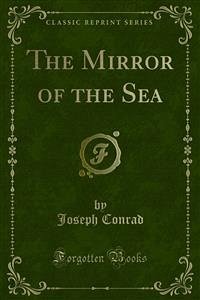From Short Stories Published in "The Keepsake Annual" of 1828
The Keepsake Stories is the title given to three short stories by Sir Walter Scott which appeared in The Keepsake For 1829, a literary annual published for Christmas 1828. The short stories were entitled "My Aunt Margaret's Mirror", "The Tapestried Chamber" (or, "The Lady in the Sacque"), and "Death of the Laird's Jock".
Sir Philip, who had married for money and quarrelled with his brother-in-law, determined on the declaration of war in 1702 to join the Duke of Marlborough's army in Flanders as a volunteer. Receiving no tidings of him for many months, Lady Jemima resolved to consult a doctor from Padua, who had the reputation of being able to show his visitors their absent friends, and what they were doing. Accordingly, she and her sister, disguised as soldiers' wives, went to him secretly, when he at once told them their real names and the information they desired. Having enjoined absolute silence, and changed his dress to that of an eastern necromancer, he led them into a room hung with black and lighted with torches, containing a large mirror behind an altar, on which were two swords, an open book, and a human skull. Gradually the mirror ceased to reflect these objects, and they saw the interior of a foreign church, in which Sir Philip was about to be married to a beautiful girl, when a group of officers entered, one of whom advanced towards the bridal party, arid swords were drawn on both sides. The scene then vanished, and the mirror again reflected the contents of the room. Restoratives were now offered to the ladies, and they were conducted to their carriage, the professor handing Lady Bothwell a composing draught for her sister.
A few days afterwards news arrived from Holland that Sir Philip's nuptials with the daughter of a rich burgo-master were actually about to be celebrated, when Major Falconer, who happened to be in the town, and had come with some brother officers to witness the ceremony as an amusement, recognised and denounced the would-be bigamist, accepted a challenge from him, and was killed. Lady Jemima never recovered from the shock, the Italian disappeared to escape arrest as a Jacobite, and Sir Philip having, in his old age, sought in vain a reconciliation with Lady Bothwell, eluded pursuit as a murderer and died abroad.
The Keepsake Stories is the title given to three short stories by Sir Walter Scott which appeared in The Keepsake For 1829, a literary annual published for Christmas 1828. The short stories were entitled "My Aunt Margaret's Mirror", "The Tapestried Chamber" (or, "The Lady in the Sacque"), and "Death of the Laird's Jock".
Sir Philip, who had married for money and quarrelled with his brother-in-law, determined on the declaration of war in 1702 to join the Duke of Marlborough's army in Flanders as a volunteer. Receiving no tidings of him for many months, Lady Jemima resolved to consult a doctor from Padua, who had the reputation of being able to show his visitors their absent friends, and what they were doing. Accordingly, she and her sister, disguised as soldiers' wives, went to him secretly, when he at once told them their real names and the information they desired. Having enjoined absolute silence, and changed his dress to that of an eastern necromancer, he led them into a room hung with black and lighted with torches, containing a large mirror behind an altar, on which were two swords, an open book, and a human skull. Gradually the mirror ceased to reflect these objects, and they saw the interior of a foreign church, in which Sir Philip was about to be married to a beautiful girl, when a group of officers entered, one of whom advanced towards the bridal party, arid swords were drawn on both sides. The scene then vanished, and the mirror again reflected the contents of the room. Restoratives were now offered to the ladies, and they were conducted to their carriage, the professor handing Lady Bothwell a composing draught for her sister.
A few days afterwards news arrived from Holland that Sir Philip's nuptials with the daughter of a rich burgo-master were actually about to be celebrated, when Major Falconer, who happened to be in the town, and had come with some brother officers to witness the ceremony as an amusement, recognised and denounced the would-be bigamist, accepted a challenge from him, and was killed. Lady Jemima never recovered from the shock, the Italian disappeared to escape arrest as a Jacobite, and Sir Philip having, in his old age, sought in vain a reconciliation with Lady Bothwell, eluded pursuit as a murderer and died abroad.









